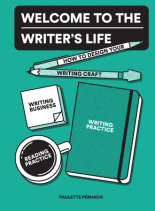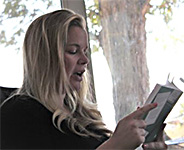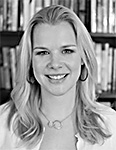An introduction to a writer’s life by Paulette Perhach (Paraguay)
 Welcome to the Writer’s Life
Welcome to the Writer’s Life
by Paulette Perhach (Paraguay 2008–10)
Sasquatch Books Publisher
320 pages
$ 18.95
2018
INTRODUCTION
Hello there.
On the day that changed me from someone who wanted to be a writer to someone working to be a writer, I was a twenty- six-year-old Peace Corps volunteer in the capital of Paraguay, on a swamp-hot bus packed mostly with office workers on their way home. The bus squealed to a stop, and the driver opened the door.
Since so many of the stories, both hilarious and traumatizing, that I told my family and friends back home started with someone getting on the bus, I’d developed a reflex to watch that door, waiting for whoever or whatever was next.
A young woman, maybe twenty, hopped on and stood at the front, smiling. She greeted us hello in Guaraní, not with the usual booming voice of the infomercial-ready salesmen holding racks of nail clippers, DVDs, and/or empanadas, and not with the silent eyes of the children who walked the aisle barefoot, holding out their hands or placing candies with notes in our laps explaining why their families needed our change, but instead with a voice that the grind of the engine nearly swallowed.
“I’m going to give you something,” she said, and we passengers, ignoring her, continued to ignore her. “If you like it, you can give me something for it, and if not, I’ll take it back.”
She handed out what she had, on blue-speckled stock paper, a kind I hadn’t seen since I left my country a year before. On it she’d printed a poem. Her poem. She was a real live writer.
When she had collected her money, she turned to get off the bus but then faced us again, waving and smiling, with a red clown nose she’d popped on. Then she bopped out into the streets, past kids holding packs of gum up to open car windows, past dogs scrounging in trash cans, into the heat and the red dust.
You wuss, I said to myself as I watched her bounce away, a dirty window between us. Just be a writer already.
Seeing that poet taught me that being a writer is not about being special. It’s not about being published; it’s not about being famous. Writers are writing everywhere, at every scale.
That marked the day I really began the work. Up until then I had been a reporter but not a deep reader, not someone who wrote outside of my reporting day job unless it was to vent or celebrate in my journal. I had always wanted to be a writer in the artistic sense, someone who made art with words, but I was too scared to even admit it and then too scared to put in the effort I knew it would require, with all that risk that it might not go anywhere. So I hid behind reporting the facts, as if my writing by itself would never be enough. That poet on the bus showed me that doing the thing was a kind of success in itself. She didn’t ask permission to be a writer, and she didn’t wait until someone told her she could be a writer—she just made her poems and brought them out into the world. She dared me to start the work.
I don’t think she could have done that to me without the year I’d had in Paraguay. I had shown up knowing neither Spanish nor Guaraní, so I’d had to spend a year studying and practicing and working harder than I ever had before to turn myself from a mute alien into a human in the eyes of the people around me. I’d spent my youth watching Saved by the Bell and The Simpsons and avoiding chores or getting off the couch for any other reason than to heat up another Toaster Strudel. I’d spent high school and college sneaking by, doing the minimum I had to do to get good grades. When I’d heard that Hemingway rewrote the end of A Farewell to Arms thirty- nine times, I knew I could never be a writer, because I thought then that I would never work that hard. For much of my life, I had been, in short, a little shit.
Learning two (OK, one and a half) languages required more of me than I’d ever given in my life. Like with writing, there is no faking it, cheating, or shortcutting when learning a language. You either know why people are laughing at you or you don’t. Your conversation shows your work, just as your writing does. In Paraguay, as I rediscovered the pleasures of conversation in words that used to just be flash cards, fell in bilingual love, and made my host mom cackle with a perfectly placed profanity in Guaraní, the experience taught me the slow-cooked joy of working hard for a long time.
After seeing that poet on the bus, I stocked up on writing books in the Peace Corps library and, as they told me to, tried to write every single day no matter what. When I messed up, I yelled at myself in the way I thought necessary. Then, after some moping, I began again. I put my butt in the chair (or hammock, as the case often was) and put words on the page. I failed again. I began again. I failed again. Began. I began to begin, over and over and over and over. In this way, I became an expert at beginning to be a dedicated writer. Here are my credentials: I’ve begun a thousand times.
 I started to write down ideas. I started dozens of first drafts. I set up accountability measures to make myself finish. If, and more often, when, those failed me, I set up new ones.
I started to write down ideas. I started dozens of first drafts. I set up accountability measures to make myself finish. If, and more often, when, those failed me, I set up new ones.
I shifted from wanting to be a writer to working to be a writer, and this book will show you how you can make that shift for yourself. You can’t control whether you’re a published writer, a professional writer, or a paid writer, but you can control whether you’re a writing writer. That’s what this book will make you.
After Peace Corps, I landed at my mom’s house, firmly back to everyday life. Now I had a nine-to-five and waitressed on the weekends. No more hammock, long afternoons, or boredom that invited freewriting. It was just working, cooking dinner, and making myself write for an hour each night, though I didn’t feel like I was getting anywhere.
Eventually, in 2011, I moved to Seattle. My new apartment, I found out, happened to be just six blocks from a writing center.
“What the hell is a writing center?” I asked.
Hugo House, named after the poet Richard Hugo, offered a schedule filled with readings and classes in an old funeral home by a park, basically Candy Land for writers. I walked past the entrance a few times, intimidated by the Official Writers I saw milling around inside.
I finally went to my first reading there. I had attended a few readings in college, big auditorium affairs with fancy names on a stage far away, but this felt more like a living room filled with friends, like a party I was crashing. I stood silent and alone among writers talking and joking with each other. My social anxiety grabbed me by the collar and said, “We gotta get out of here!” I pictured myself running right back down those stairs and home, but I made myself take a seat.
Out came a writer wearing a skirt and a smirk, backed by a jazz band, tapping a tambourine to the tune of poems that landed joke after joke. As my laughter joined the crowd’s, I knew I wanted to be a part of this, whatever this was. That night, I felt like an imposter in a place where I wanted to feel at home.
As I just kept showing up, I learned that no one is going to come look for you to be a writer. You just have to join in. But I want to greet you at the door, let you know you’re welcome here. With this book, I want to show you around. As writers later would for me, this book will sit down for a drink with you at the bar up the street after class and let you in on how the whole writing thing actually works. It gives you a peek behind the authors’ photos to introduce you to the real people working day jobs, facing doubts, but still scribbling in notebooks hidden in the car or typing away on laptops late at night, to try to do this thing called being a writer.
Seven years after Peace Corps, I flew back to Paraguay to visit my host family. The man at customs asked me my occupation. “I’m a writer,” I told him in my still-working Spanish. By then, this sentence felt like a part of me. I had taken years to first utter it and a few more to say it without flinching or hedging. That last year had been my first as a full-time freelancer, selling articles and coaching new writers with the online course that originated this book. I had seventy thousand words of a novel written. And my life included occasional emails with news of publications or opportunities that made me squeal and shimmy through my apartment. I was a writer, no doubt about it.
I come to you not just as a writer but as an observer of the writing world and someone who responds to confusion by straightening bottles on shelves and making spreadsheets.
That is to say, I organize things, and here I’ve organized for you a welcome kit of everything that would have helped me most in my first years, if only I’d had it back then. If I could travel back in time to meet the person I was, trying to become a writer in the suburbs with a nine-to-five, student loan debt, and a side gig taking up my weekends, this book is what I would give her.
I collected the contents from conversations I’d had at post- reading parties with writers who had written novels, memoirs, and poetry collections; my own experience from before and after publications; and years of studying the storytelling knowledge humans have accumulated over thousands of years.
As I went through my writing life, four, five, six years in, I learned things and thought, Why didn’t anyone tell me that at the beginning? So many wonderful craft and writing books helped me, but I didn’t find one that presented all the resources, basics, and debates beginning writers should know in the areas of writing, reading, trying to make a living, and trying to make a life as a writer, like an artist’s freshman orientation. So that’s what I wrote. This book will give you a panoramic view of what you need to know most and what you need to know first to become a person who can look someone else in the eye and say, “I’m a writer,” even if you also work a day job.
We’ll cover the psychology of getting down to work among your fears, the math of keeping your bank account positive while working hard for free, and the logistics of designing a fulfilling life around writing. It’s about action, so get your notebook and a pen, or your laptop.
I’ll discuss writing in the way I know it, which will be different from the way other writers know it. Do we contradict ourselves? Very well, then we contradict ourselves. (We contain multitudes.) The more books on writing you read, the more views you’ll get and the more informed you’ll be to select the style of living and working as a writer that’s right for you.
I’m lucky enough to have Hugo House—the place that gave me a scholarship to my first writing class when I was making
$340 a week serving wine and jotting down story ideas on the back of my order pad. It felt so much harder to pursue writing when I didn’t have other writers in my life, when I didn’t have any idea how many people and organizations wanted to assist me, and when it seemed as if everyone on book jackets got a master’s in creative writing at an age younger than I was when I decided to start trying. Some people can get a writing life going on a bus in Paraguay. I needed help.
I hope to pay forward the support I got from my writing community. As they did for me, I lay down this book for you as a welcome mat to the writing world. By the power vested in me, I say, “Come on in.”
•
Paulette Perhach’s writing has been published in the New York Times, Elle, Slate, Cosmopolitan, and Marie Claire. Hugo House awarded her the Made at Hugo House fellowship in 2013. She was nominated for the 2016 BlogHer Voices of the Year award for her essay “A Story of a Fuck Off Fund.” Recently she was on the faculty of the September RPCV Writer’s Workshop in Maryland. She can be reached at: paulette@pauletteperhach.com

I’ve read this three times now and every time it touches me in a new way. Thank you for kicking me out of the hammock!
Thank you Jeanne!
What a complete, intimate, detailed account of becoming a writer! And the proud moment of calling yourself one. I wish you all the luck in the world and look forward to seeing you on a best-seller list, Paulette.
Leita Kaldi Davis (Senegal 1993-96)
Thank you so much Leita! I’m here to help if you ever need any assistance with your writing life!
Excellent work. You are indeed a writer.
Bill Donohoe, Ethiopia (62-64
Thanks Bill!